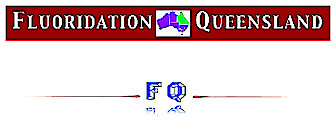You are here: Home1 / Research2 / Ameliorative Effects of Quercetin on Sodium Fluoride- Induced Oxidative...
The study revealed that administration of fluoride resulted
in a significant downregulation of antioxidant defences
coupled with an increased serum level of
glomerular damage markers.
Laboratory Study:
Ameliorative Effects of Quercetin on Sodium Fluoride-
Induced Oxidative Stress in Rat’s Kidney
2012,
Vol. 34, No. 7 , Pages 901-906 (doi:10.3109/0886022X.2012.687347)

Original → HERE
1Applied Biotechnology Research Center, Baqiyatallah University of Medical Sciences, Tehran, Iran
2National Elites Foundation of Iran, Tehran, Iran
3Pharmacognosy Research Laboratories, Medway School of Science, The University of Greenwich, Kent, UK
4Department of Biology, University of Mazandaran, Babolsar, Iran
Address correspondence to Seyed Mohammad Nabavi, Applied Biotechnology Research Center, Baqiyatallah University of Medical Sciences, PO Box 19945-546, Tehran, Iran. Tel.: +98 21 22823734; Fax: +98 21 22823734; E-mail: Nabavi208@gmail.com
Objective: The in vivo nephroprotective effect of quercetin against sodium fluoride (NaF)-induced damage was studied. Methods: Renal injury was induced by daily administration of NaF (600 ppm) through drinking water for 1 week. The levels of reduced glutathione (GSH), lipid peroxidation as well as superoxide dismutase and catalase activity of kidney homogenates were determined. The serum markers of glomerular damage, including creatinine, serum urea, and blood urea nitrogen levels, were also assessed. Results: The study revealed that administration of fluoride resulted in a significant downregulation of antioxidant defenses coupled with an increased serum level of glomerular damage markers. The administration of quercetin prior to fluoride reversed the antioxidant–oxidant balance to control (fluoride-untreated) level. The level of protection obtained for the 20 mg/kg quercetin treatment was equivalent to the positive control, ascorbic acid (10 mg/kg). The therapeutic implication of antioxidants in fluoride-induced nephrotoxicity is discussed. Conclusions: This study showed that NaF intoxication caused renal damage by increasing oxidative stress, and quercetin and vitamin C administration gave protection against fluoride-induced oxidative stress to some degree.



Scroll to top



